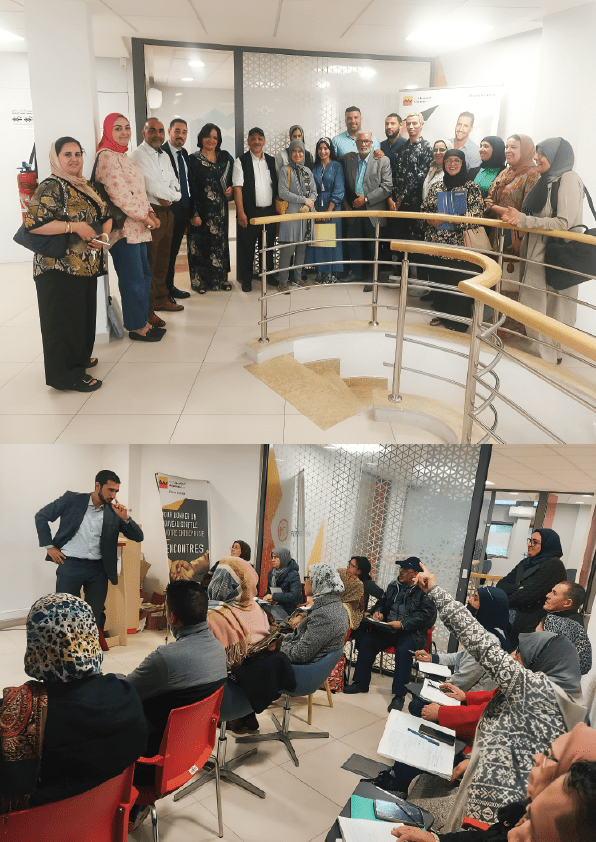RABAT DELEGATION
SECTOR DESCRIPTION
The cooperative sector in Rabat, SalĂŠ, KhĂŠmisset, Skhirate and Temara is a vital force that makes a significant contribution to the region’s economic and social prosperity. Cooperatives are key players in sustainable development, playing a crucial role in promoting entrepreneurship, preserving local traditions and strengthening community ties. The Rabat region currently has 4 159 cooperatives, with a total of 61 013 members. In addition, there are 412 women’s cooperatives, with a total membership of 3 107.
Rabat, as the capital of Morocco, is home to a diversity of cooperatives operating in various sectors such as agriculture, crafts, commerce and many others. Agricultural cooperatives, for example, are essential pillars of the local economy, promoting sustainable and fair farming.
In the crafts sector, cooperatives play a crucial role in preserving traditional trades. Cooperatives of pottery, weaving and other handicrafts have sprung up, enabling artisans to share their know-how, improve the quality of their products and access larger markets, both nationally and internationally.
The cooperative sector in Rabat, SalĂŠ, KhĂŠmisset, Skhirate and Temara is also involved in social initiatives, promoting the inclusion and well-being of local communities. Cooperatives with a social vocation offer employment opportunities to disadvantaged people, promoting equitable and sustainable economic growth.
ACTIVITIES AND EVENTS
Training session ODCO - Dar Almoukawil
As part of the agreement established between the Office of Cooperation Development (ODCO) and Attijari Wafa Bank â Dar Al Mokawil, a training was carried out at the Dar Al Mokawil Centre in Rabat. This training benefited 31 managers of cooperatives operating in various sectors of activity.
The training discussed five distinct modules. First, the introductory entrepreneurship module allowed participants to acquire the fundamentals of business creation and management. Then, the module on business model and market research focused on building robust business models and conducting market research to understand customer needs. The third module, dedicated to business planning and creation, equipped participants with the skills to develop sound business plans. The fourth module, which focused on marketing and the commercial approach, addressed effective strategies for promoting the products or services of cooperatives in the market. Finally, the fifth module, dedicated to financial management, dealt with aspects such as accounting, budgeting and management of financial resources, aimed at ensuring the stability and financial growth of cooperatives.
This collaboration between ODCO and Dar Al Mokawil has provided cooperative managers with practical skills and strategic knowledge, strengthening their capacity to effectively manage their cooperatives and contribute to local economic development.

PROGRAMS AND PARTNERSHIPS
Generation Green
The Generation Green programme, the result of the partnership between the National Office of Agricultural Council (ONCA) and the Office of Cooperation Development (ODCO), is part of a vision based on “Putting the Human First”. This ambitious program aims to catalyze the emergence of a new generation of socio-economic organizations within the farming community.
This strategic approach aims to create strong collaborative entities, allowing farmers to benefit from synergies and maximize their impact in the different value chains. The program aspires to achieve a 25% consolidation rate in the long term, demonstrating the ambition to create a united and prosperous farming community.
By focusing on improving the organisation of the sector, Generation Green is committed to promoting sustainable agricultural development and strengthening farmers’ resilience in the face of contemporary challenges. This innovative program embodies a holistic vision to place the human element at the heart of agricultural dynamics, thus contributing to the creation of a new era of dynamic agricultural cooperatives committed to the socio-economic development of the sector.
Successful cooperative models
The Yacout cooperative, established in the heart of Rabat, stands out as a major player in the field of production of cosmetic products, vegetable oils and food products, it embodies excellence through its commitment to quality and customer satisfaction.
With certifications from the Moroccan Institute for Standardization (IMANOR), the National Office for Food Safety (ONSSA), Morocco Foodex, as well as the ISO9001 standard, the Yacout cooperative demonstrates its commitment to the highest quality standards and food safety.
The cooperative's success lies in its ability to stand out in the market through innovation, offerâs diversification, e-commerce, and an effective marketing strategy. By integrating these key elements, Yacout has been able to establish its presence in a significant way, offering products that meet the varied needs of its customers while remaining at the forefront of market trends and requirements. This dynamic approach allows it to play an essential role in the local economic landscape, contributing to the positive evolution of the sector and the influence of the cooperative on the national and international scene.
At-Tawafouk cooperative, located about fifteen kilometers from Rabat, is emerging as a model in the field of waste sorting and recovery in Morocco. Founded by informal waste pickers in 2010, this cooperative has transformed its humble beginnings into a thriving cooperative enterprise, symbolizing an innovative alternative in the waste treatment landscape.
At-Tawafouk, which currently has 151 members, including 27 women, depends entirely on the sale of sorted waste, which is exported to various destinations for recycling, generating an annual turnover of more than 6 million dirhams, which reflects its financial success.
At-Tawafouk cooperative remains an inspiring example, combining operational efficiency with environmental, social and economic responsibility, in the quest for sustainable waste management.




RABAT DELEGATION
Address: Avenue Lalla Asmae, Lotissement Esbihi, Street Lharcha, Building 9, 3rd Floor, Apartment 8, Tabriquet, SalĂŠ.
Telephone: (212) 5.37.85.45.82
Mail: odco.rabat@odco.gov.ma

